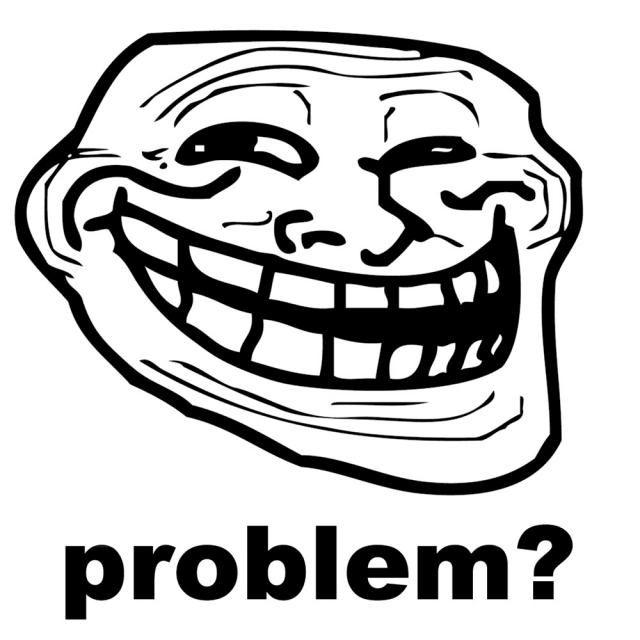Guides
What Are Internet Trolls, And What Does Trolling Mean?
The word internet troll has come a long way over the course of internet history, now teetering along the edge of meaning "mildly offensive internet jester" to meaning disingenuous serial harasser. The troll's origins are that of a harmless provocateur, but its present-day meaning has expanded to enter discussions about everything from politics to internet privacy and safety. Here's the origins of trolling on the internet.

Who Was The First Internet Troll?
The origin of the word "trolling" predates the infamous Trollface pictured above; in fact, the word predates the modern internet as we know it. The earliest mention of the word "trolling" stems back to something from the early 90s called the "Usenet." In this newsgroup, posting low hanging, often repeated questions was a common way to "troll the newbies" in an attempt to bait newer users into wasting their time by answering silly questions.
This practice of playing dumb and acting disingenuous with one's behavior online became so common in the 90s that it even became the topic of a Kevin and Kell comic strip in 1997.

What Does Trolling Mean Today?
Today, "trolling" is a catchall term for someone who makes someone else on the internet angry for the heck of it. Key markers of the modern internet troll are their anonymity (you don't know who the troll really is) and their disingenuousness. The latter of these qualifiers points to the true nature of the internet troll; they don't truly believe what they are arguing for, and getting you riled up about it means they win. The internet troll can be likened to a bad clown or a mean court jester. Their goal is to mock someone from a place of relative safety and anonymity, with no higher goal than simply needling their victims.

The term trolling came under more scrutiny in recent years after the practice was linked to various political shenanigans on the internet. But trolls don't have to be politically charged villains. It just so happens that politics is the easiest way to get someone angry and engaged long enough for you to waste their time. The trolls' capacity to make someone engage with them through hot-button topics has led to the creation of the phrase "Don't feed the trolls."

What Are Some Different Kinds Of Internet Trolls?
There are many different ways that internet trolls operate, using different tactics to cause maximum (and ideally harmless) grief to their victims. Concern trolling is one insidious way to mess with another person on the internet. Concern trolls are not unlike wolves in sheep's clothing. They act as though believe the exact opposite of what they do, and enter a group to cause confusion, outrage, and mayhem from within.
Another popular form of internet trolling is advice trolling, which is when trolls mislead people by offering dubious or even malicious advice, especially to a newbie who is more gullible than a veteran on a website or forum.

How Do I Identify An Internet Troll?
If you see any of the following characteristics in someone you suspect is a troll, they might be on a mission to annoy and harass you for the lulz. Internet trolls often have anonymous accounts, flip-flop on their principles, make obviously outrageous or baseless claims, don't let an argument dissipate, and most importantly, they seem to get off on wasting your time or making you mad.

What Are Some Recent Instances Of Internet Trolling?
Trolling has become so common and mainstream that Donald Trump mentioned the word during a campaign rally in 2020, saying "we do a little trolling, it's called we do a little trolling." The bizarre syntax of the statement and Trump's use of the word "trolling" made the phrase popular in memetic use.


There have also been attempts to relinquish "trolling" from its current politically charged meaning, with people making jokes about how fun it is to be sarcastic or insincere by spreading misinformation on the internet.


So the next time you are compelled to do a little mischief on the internet, know that you can do it in a manner that is as annoying as it is harmless, true to the historic legacy of trolls on the internet.
For the full history of trolls and trolling, be sure to check out our entry on the slang term here for even more information.
